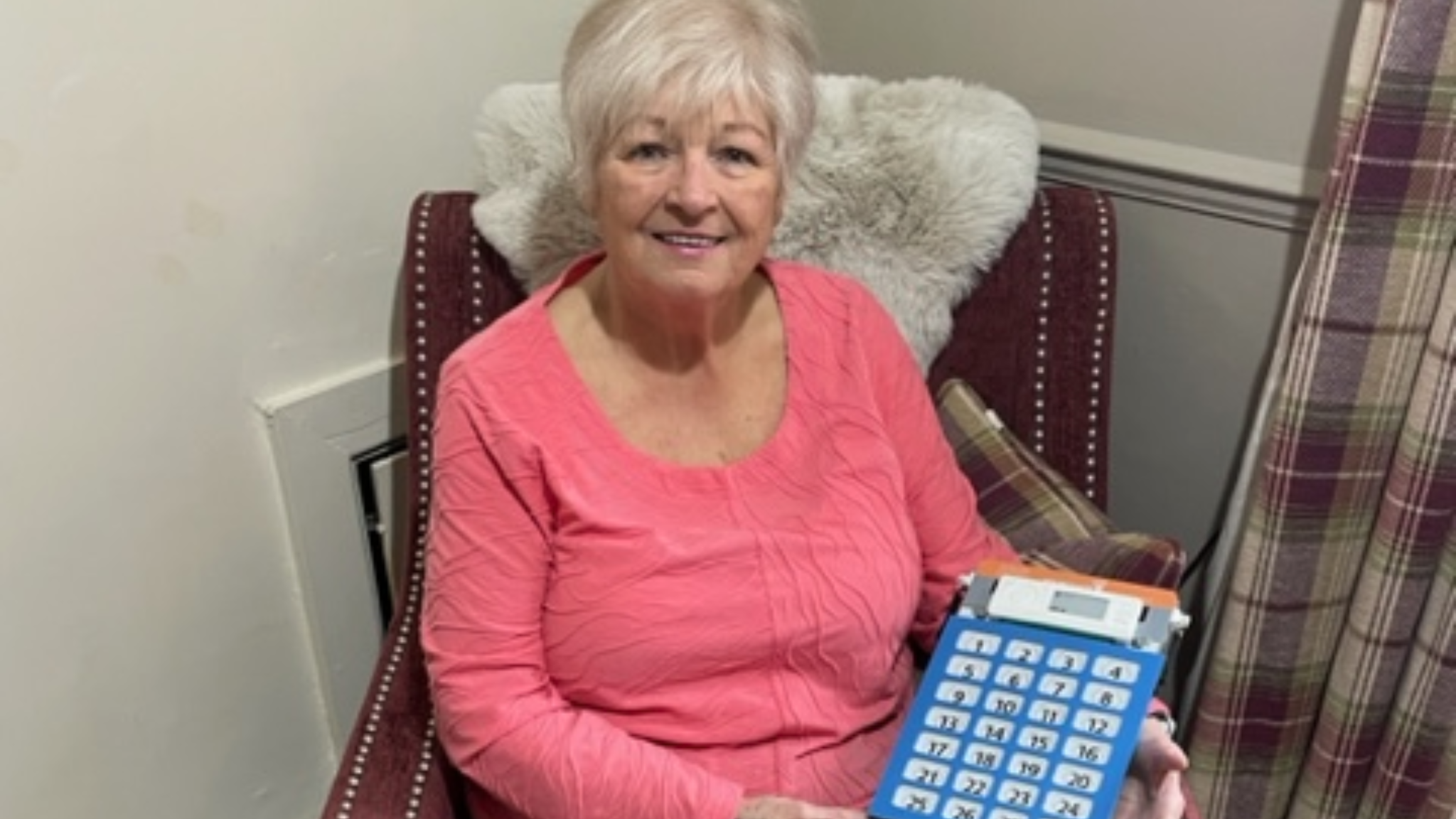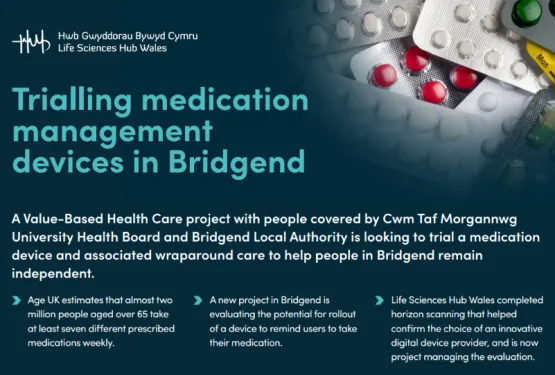How Life Sciences Hub Wales has supported the project
Life Sciences Hub Wales completed a horizon scanning exercise to confirm that YOURmeds was the best available solution for the needs of users in Bridgend and Wales.
We’re now project managing the process of rolling out and evaluating the approach in Bridgend, with an eye on the potential benefits this could bring if rolled out across Wales. This includes coordinating input from stakeholders, supporting communications and reviewing potential for similar projects in other areas.
“Project managing an evaluation like this,whilst trying to attend visits and support day-to-day frontline service challenges is really difficult for health and social care teams to manage. This often delays innovation or sometimes makes it impossible to implement. Here in the Hub, we can support health and social care services right from the start of an idea and project management can form part of this support. It helps to take some of the pressure off service leads and allows them more time to consider innovation. Collaborations like this also help us find new opportunities to support wider innovations all across Wales.”
Louise Baker, Project Lead, Life Sciences Hub Wales
What next?
Once the evaluation project is complete, an independent evaluation will be carried out by Value Based Healthcare, incorporating feedback from all the stakeholders involved, including users, families, pharmacists and domiciliary care and telecare teams.
The success of the project will be assessed with a view to long term adoption of the device and service, rollout to other regions (or nationally), as well as potential for similar support for other types of treatment, for example inhalers and eye drops.
Read the full project timeline
Get in touch
We’re here to help drive system-wide transformation! If you want to access support similar to that outlined in this case study, then we want to hear from you. Submit your enquiry today via our website.


